Can family change?
On the 4th of May 2022, the Centre for Applied Philosophy and Ethics hosted a webinar on Beyond Family: Is family immutable? Fr. Jude Karuhanga, Assistant Chaplain at Strathmore University, opened this webinar with a reminder that the year 2022 is a year of the Family as declared by Pope Francis. Fr. Jude looked to address the meaning of family in this lecture and, through the lens of the changing culture, he sought to determine whether or not the idea of family can be changed.
What is Family?
Saint John Paul II is credited with the following quote: “As the family goes … so goes the nation and so goes the whole world in which we live.” It is implied that if the family (and its members) are living well, then the whole world will do well; likewise, if the family is doing badly, then the whole world will be in a terrible state.
But what is the family, really? This, Fr. Jude seeks to answer by looking at two different and opposed views: the traditional view, then later in what may be viewed as the modern (postmodern) view.
The traditional view
In the traditional view, the family is founded on the idea of marriage between a man and a woman and is based on the love the two individuals share, which gives rise to new life. It is a love that necessarily involves sacrifice. From Familiaris Consortio, a document written by St. John Paul II, a definition of family along the lines of which the traditional view is drawn:
“The family, which is founded and given life by love, is a community of persons; of husband and wife, or parents and children, of relatives. Its first task is to live with fidelity the reality of communion in a constant effort to develop an automatic community of persons.” (FC, 18)
The idea of marriage and family in this traditional sense tends towards being other-centered, creating a space for equality and complementarity between the husband and the wife. That love is service-oriented, and not defined merely by receiving.
Kimberly Ells, in her book The Invincible Family, closes this traditional definition of family noting that if “there is a father who loves the mother, a mother who loves that the child, and a child who knows and loves the parents, then this is the highest quality environment available on earth.” She further says that this is family, whether they live in a high-rise apartment or on a farm ranch.
The modern/post-modern view
In the modern/post-modern view of the family, there is a (new) sense of diversity. Here, marriage is thought to be founded on a simple agreement between parties, resulting in a provisional union, not “perpetual” or “exclusive” or “total” as in the traditional view. In the modern view of the family, the elderly and sick are a burden; children are an unnecessary responsibility, and fidelity is equivalent to a lack of freedom. As such, euthanasia and abortion are acceptable, or even encouraged. Not all advocates of the modern view will go to these extremes, but they are the consequences of the new definition of marriage and family. Another modern proposal is that “family” be taken to refer to any group of people who simply love each other. In this case, it doesn’t matter who or how many people decide to form a “union”, or even how. Two or three people could make a “marriage”, heterosexual or homosexual or both. And then, membership to the “family” is provisional. If the “parents” get tired of one of the “children”, they could simply leave them.
There are several movements behind the modern view of the family. Kimberly Ells categorises them as socialism, feminism and sexual liberationism.
Socialism basically seeks to abolish private property, and yet the family is the origin of private property. One of the main obstacles to the establishment of the socialist utopia is therefore, the traditional family (parents and children in a home of their own). The founders of this movement speak clearly about abolishing the nuclear family, taking women away from homes and into the factory, and educating children communally. Feminism, following the socialist idea, argues that women are inhibited from realizing themselves by motherhood and home care. One of the leaders of feminism, Linda Gordon, says, “The nuclear family must be destroyed, and we must find a different way of living together.” Sexual liberationism argues that sexual differences are socially constructed, and therefore there is no such thing as “man” or “woman”, which empties “marriage” of meaning, and consequently, “family”.
The movements against the family are active in publications, entertainment, politics and even in education. One way they have tried to promote the modern view is through “Comprehensive Sexuality Education”, which is meant to be taught in schools. This program has been opposed in Kenya, but is active elsewhere.
Beyond Family
So, is the family invincible? Kimberly Ells thinks so. She argues that the family is, by nature and design, immutable. Babies will always belong to their mothers and fathers. Naturally, the umbilical tethering of children to their mother is the sign that children belong to their parents. Perhaps new ways of gestating children could be invented, but the fact that it takes two, a man and a woman, to give rise to a child, is something we cannot change.
However, this does not mean that the family will, on its own, stand against the onslaught of opposing forces. It could be destroyed, and society would fall thereafter, as St. John Paul II warns.
Ells makes several suggestions on how to defend the family, among which are the following: (1) teach what we believe; (2) become informed through more analysis and reading; (3) study the history of socialism, feminism, sexual radicalism; (4) watch the documentary The War on Children; (5) do not lose hope.
This article was written by Cyrus Muthumbi, School Administrator, School of Humanities and Social Sciences.
What’s your story? We’d like to hear it. Contact us via communications@strathmore.edu





